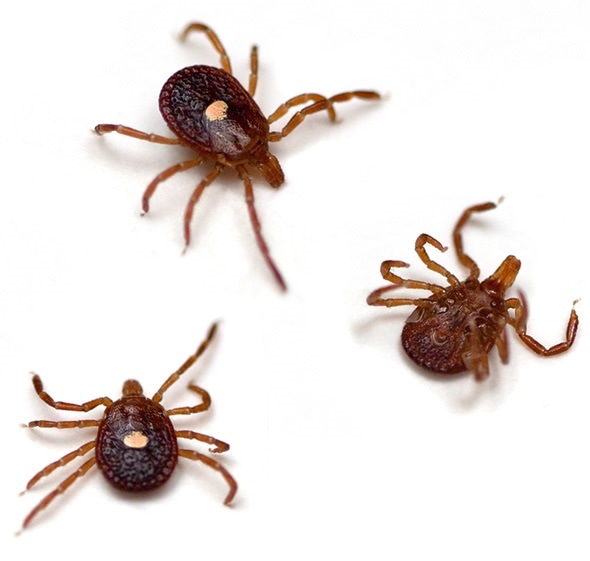Alpha-gal allergy was first described in a few patients in 2009. Within 5 years it had become evident that they were only the tip of the iceberg. Alpha-gal allergy has a prevalence of thousands in some parts of the US and Europe.
The condition is an immunoglobulin E (IgE) mediated allergy to the monoclonal antibiotic cetuximab, used in cancer treatment. The antibody binds to an oligosaccharide named alpha-gal, located on the FAB portion of the cetuximab molecule.
This oligosaccharide, or two-sugar molecule, is chemically called galactose-alpha-1,3-galactose, signifying that the two galactose sugar molecules are held together by a glucoside bond between the carbon atoms at positions 1 and 3. This is targeted by pre-existing IgE antibodies in the bodies of allergic patients to produce acute or delayed anaphylaxis.
The primary cause of this strange reaction is the bite of the species of tick called the Lone Star tick or Amblyomma americanum in the USA, while it is to the bite of Ixodes ricinus in France and Ixodes holocyclus in Australia.

Lone Star Ticks (Amblyomma americanum) - Image Copyright: Melinda Fawver
This kind of IgE binding to alpha-gal is an example of an allergic reaction that does not produce allergic rhinitis or asthma.
Alpha-gal allergy is a distinct type of cell-mediated allergy brought about by exposure to meat-associated carbohydrates, rather than proteins, and with a time delay measured in hours between exposure and reaction. In alpha-gal allergy of the delayed type, the factors which influence the strength of the reaction include the dose, the time of exposure in relation to the tick bite, and the type of meat ingested.
Alpha Gal and the Lone Star Tick
In many patients, a small amount of animal meat does not bring about a hypersensitivity reaction. However, larger doses may precipitate allergy, and full helpings such as a plate of barbecued pork often cause a multi-system anaphylactic reaction. Meats with a higher fat content also elicit severe reactions often requiring emergency treatment, even when the patient has eaten the same type of meat lean a few days earlier.
The timing with regard to the duration since the tick bite suggests that the IgE antibody production naturally fades with time but reactivates with repeated bites. Thus patients may not suffer any reaction to meat for several months but then suddenly develop a severe anaphylactic reaction following a recent tick bite.
The typical delay from eating to the appearance of symptoms is approximately 3-6 hours. This may be explained by the time required to absorb the oligosaccharide and transport it to the bloodstream, which requires 3-4 hours, as well as the transport of the alpha-gal antigens on chylomicrons into the general circulation.
Symptoms
Symptoms of alpha-gal allergy include those of urticaria, angioedema or full-fledged anaphylaxis. They may be life-threatening in several cases.
Precautions
Patients with alpha-gal allergy should avoid beef, lamb, and pork. In some cases milk is also avoided if symptoms persist when dairy products are included in the diet.
Treatment
Patients with alpha-gal allergy should be alert for signs of hypersensitivity and should carry EpiPens with them so that allergic reactions can be arrested as early as possible. Medical care should be immediately sought in case the reaction progresses or fails to be controlled. After the acute symptoms are controlled, it is recommended that they see an allergist to confirm the diagnosis and plan further management.
References
Further Reading
Last Updated: Dec 30, 2022